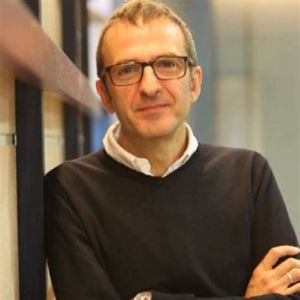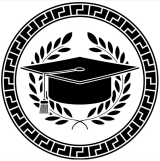One of our staff members is contributing considerably to a News Archiving service at Mu. Any well educated (Masters, PhD or above) users who wish to make comments on news sites, please contact Jim Burton directly rather than using this list, and we can work on maximising view count.
Agustin Malon: Difference between revisions
No edit summary |
No edit summary |
||
| Line 25: | Line 25: | ||
This article explores the evolving perceptions of erotic experiences between minors and adults throughout the 20th century. It highlights the disappearance and redefinition of the concept of "participating victims" – minors perceived as willingly engaging in such relationships. | This article explores the evolving perceptions of erotic experiences between minors and adults throughout the 20th century. It highlights the disappearance and redefinition of the concept of "participating victims" – minors perceived as willingly engaging in such relationships. | ||
He also worked on a study of the evolution of the legal age of consent for sexual relationships in Spain and planned to explore the history of sexual education in Spain in his next project. [https://editorial.tirant.com/es/autorList/agustin-malon-marco-317001 Brief autobiography of Malon on a Spanish | He also worked on a study of the evolution of the legal age of consent for sexual relationships in Spain and planned to explore the history of sexual education in Spain in his next project. <ref>[https://editorial.tirant.com/es/autorList/agustin-malon-marco-317001 Brief autobiography of Malon on a Spanish book site]</ref> | ||
==Excerpts from Malon's studies == | ==Excerpts from Malon's studies == | ||
Revision as of 17:58, 23 March 2024

Agustín Malón Marco is a Spanish academic, a Professor at the University of Zaragoza, known for his research in the fields of sexology, sociology and criminology. He has focused particularly on issues related to child sexual abuse such as social psychology behind the moral panic, myth construction, iatrogenic harm. He advocates for nuanced approach to child's sexuality.
He completed his Bachelor's degree in Pedagogy (1988-1993) at the University of Salamanca and earned a Master's degree in sexology at the In.Ci.Sex (University of Alcalá) from 1996 to 1998. He obtained his Ph.D. from the University of Zaragoza in 2004. After completing his studies, he worked as a pedagogue in vocational training and volunteering, as well as an educator for minors in protection. He later focused on sexual education and sexological counseling for youth.
In 2004, after completing his doctoral thesis, which included fieldwork conducted in Guatemala youth court, he began his teaching career as an associate professor at the University of Zaragoza. He currently holds the position of contracted doctor professor in the Department of Theory and History of Education at the Faculty of Humanities and Education Sciences on the Huesca Campus. He has been a visiting professor at other universities (Chile, Colombia) and is also a regular lecturer at the same institute where he trained as a sexologist.
His main scientific interest lie in education and sexology. His research primarily focuses on the complex relationship between eroticism and childhood in Western society, with a special emphasis on the phenomenon of child sexual abuse. He approaches his research with skepticism and eclecticism, drawing from various critical perspectives and disciplines such as pedagogy, sexology, sociology, history, psychiatry, philosophy, and law.
Notable works
His notable works include the monograph "Childhood, Sexuality and Danger. The modern discourse of abuse in contemporary societies" (Originally published in Spanish by Instituto de Sexologia, 2004) which is part of his doctoral thesis and dedicated to the study of the social construction of childhood sexual abuse in the last third of the 20th century.
His recent book "Contemporary Sexual Ethics. Pedagogical aspects and limits" (Tirant lo Blanch, 2016) addresses in some detail the ethical dimension of sexual experiences between children and adults. This latest work is the result of a long process of study and reflection that has generated several works, some of which appeared in the Archives of Sexual Behavior:
- Adult-Child Sex and the Limits of Liberal Sexual Morality (2015);
Critically reviews common arguments in the literature about the moral status of sexual relationships between adults and prepubescent children. Reveals deficiencies in ethical analyses based on general sexual morality.
- Pedophilia: a diagnosis in search of a disorder (2012);
Critically reviews controversies surrounding the diagnosis of pedophilia in the context of the DSM. Examines the relationship between pedophilia and the definition of mental disorder in the DSM-IV-TR.
- The "Participating Victim" in the Study of Erotic Experiences between Children and Adults: A Historical Analysis (2011).
This article explores the evolving perceptions of erotic experiences between minors and adults throughout the 20th century. It highlights the disappearance and redefinition of the concept of "participating victims" – minors perceived as willingly engaging in such relationships.
He also worked on a study of the evolution of the legal age of consent for sexual relationships in Spain and planned to explore the history of sexual education in Spain in his next project. [1]
Excerpts from Malon's studies
- Jahnke, S., & Marco, A. M. (2018). "How Pedohebephilic Think about Adult-Child Sex: Effects of Child Gender and Physical Maturity."
- "Contrary to our expectations, gender and physical maturity neither affected the perceived morality of the sexual act, nor beliefs about the representativeness of the child's behavior. [...] Furthermore, participants with stronger liberal attitudes were found to be more likely to defend the sexual act [...] There was no link between attitudes towards adult-child sex and sexual offending, replicating the non-associations reported in previous community surveys."
Jahnke, S., Schmitt, S., & Marco, A. M. (2017). "What if the Child Appears to Enjoy It? Moral Attitudes Toward Adult-Child Sex Among Men With and Without Pedohebephilia."
- "The results show that only 7.5% among pedohebephilic men had equal or less permissive attitudes than the average control, while 4.5% of nonpedohebephilic men had equal or more permissive attitudes than the average pedohebephilic man. Both groups did not, however, differ in their appraisal that children may suffer indirect harm via stigmatization. The findings also indicate that the moral perception of adult-child sex shows little differentiation among German-speaking lay people."
Marco, A. M. (2017). "Adult-Child Sex and the Demands of Virtuous Sexual Morality."
- "This article is the continuation of a previous analysis of the usual arguments — lack of consent, exploitation and harm — used to evaluate sexual experiences between adults and children from general moral principles. It has been suggested that those arguments were insufficient to condemn all adult-child sexual experiences, and that it would be of interest to study others that come from a specific sexual morality based on a more complex and transcendent conception of human eroticism and sexual conduct. This paper develops three different arguments against adult-child sex from this perspective, a view which,[..] complements and transforms them with a virtue ethic that questions not only the permissibility of certain acts but also their moral desirability under this frame of reference."
Marco, A. M. (2015). "Adult–Child Sex and the Limits of Liberal Sexual Morality."
Marco, A. M. (2012). "Pedophilia: A Diagnosis in Search of a Disorder."
Marco, A. M. (2011). "Victimology, Divergence, and Disinformation in Sexology: Commentary on Riegel (2011)."
Marco, A. M. (2011). "The "Participating Victim" in the Study of Erotic Experiences Between Children and Adults: An Historical Analysis."
Marco, A. M. (2009). "On the Iatrogenic Nature of the Child Sexual Abuse Discourse."
Marco, A. M. (2009). "Onanism and Child Sexual Abuse: A Comparative Study of Two Hypotheses."
Marco, A. M. (2009). "Infancia, sexualidad y peligro. Sobre la naturaleza iatrogénica de un discurso."
Marco, A. M. (2008). "LA HIPÓTESIS DEL TRAUMA EN EL ABUSO SEXUAL: REVISIÓN CRÍTICA E IMPLICACIONES."
